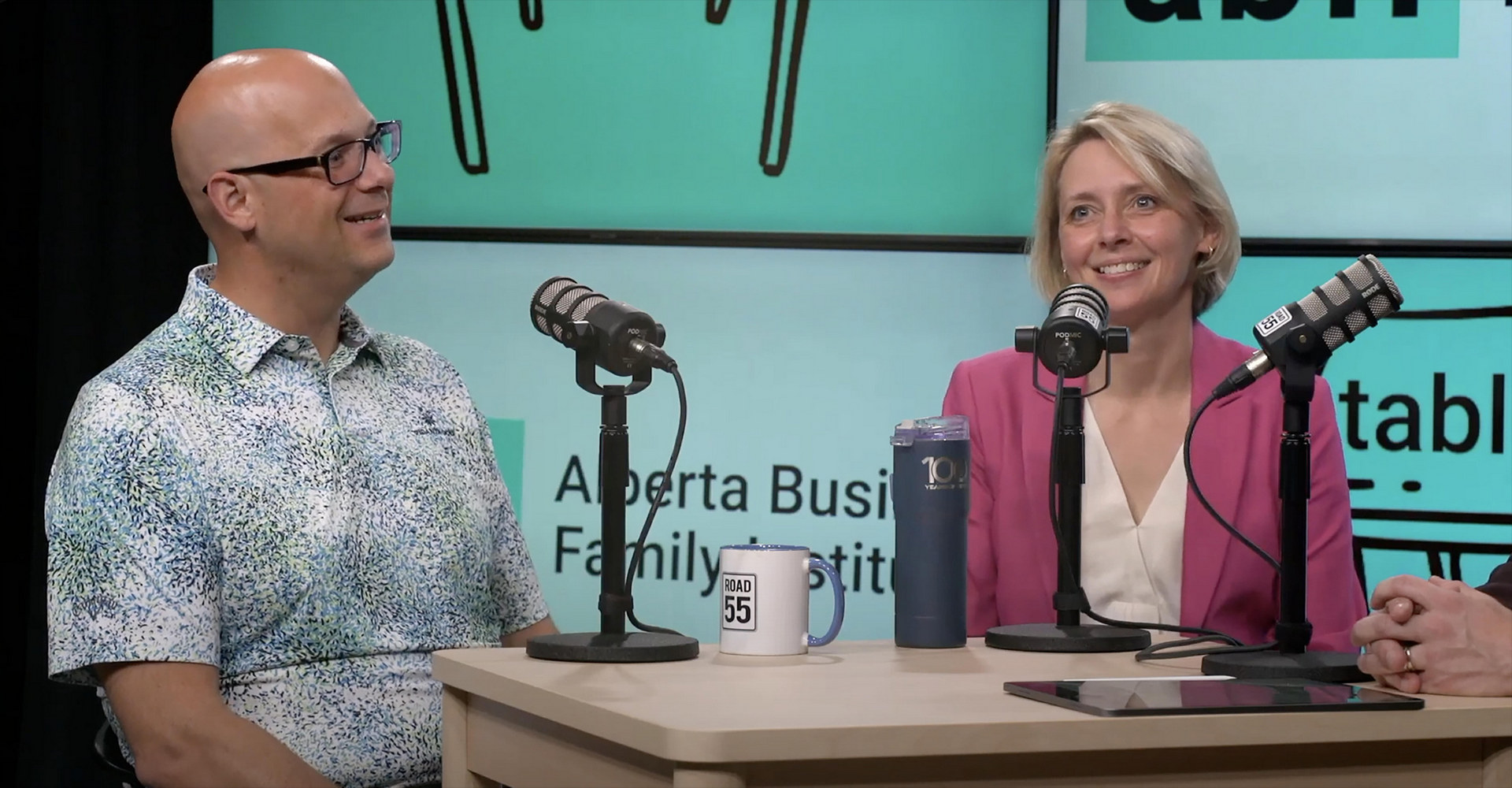
The 2023 ABFI Signature Event revealed how family businesses can transform crisis into opportunity through intentional governance, bold succession planning, and innovative ownership structures. The Rayner family's 103-year journey with VETS Group demonstrates that sustainable family enterprises require constant evolution—and sometimes the courage to break with tradition.
The VETS story began with an act of courage that would define four generations of risk-taking. When Fanny Rayner overheard on the party line that her husband Fred might be laid off, she boldly declared "tell him he quits and send him home." This 1921 moment of defiance launched a family business built on the principle that sometimes you must create your own opportunities.
"If Fanny hadn't piped in and said something, I don't even know if VETS would have been founded," reflected Erin Rayner during the evening's panel discussion. That early willingness to challenge the status quo became embedded in the company's DNA through four distinct leadership styles across the generations.
The Rayner family's success in navigating succession crises stems from their early engagement with governance education. David Rayner enrolled his teenage children in ABFI's Roadmap program when Sean was just 17 and Erin was 14—an investment that proved invaluable when David received a terminal cancer diagnosis requiring immediate transition.
"If we hadn't had those conversations around the kitchen table late at night about succession, that call from Toronto could have been a whole lot different," Sean Rayner noted, referring to the emergency transition that thrust him into leadership at age 21.
The family's commitment to recorded dinner table discussions following Roadmap sessions created a foundation of shared understanding that enabled rapid decision-making during crisis. This preparation allowed them to restructure the company within two weeks of David's diagnosis, implementing governance changes that would guide the business through its next growth phase.
The most transformative decision came two decades later when Sean made the unprecedented choice to transition from sole ownership to an Employee Share Ownership Plan (ESOP). After 100 years of single-shareholder succession, this move fundamentally altered the company's trajectory.
"Transitioning from a single shareholder every generation to the employee share ownership plan gives us the opportunity to complete the transition from a family business to a business family," Sean explained. The ESOP now includes 30 employee-shareholders out of 130 total employees, with a remarkable gender representation: nine of the 10 eligible women chose to become shareholders.
This decision reflected both Sean's collaborative leadership style and the company's core value of "ownership mentality"—part of their HONOUR values system (Human Leadership, Open Communication, Nurturing Environment, Ownership Mentality, United Team, Renowned Craftsmanship).
Perhaps the evening's most powerful revelation concerned the family's recognition of their "business-first" mentality's toll. Allison Rayner, Sean's wife, articulated what many family business spouses experience: "The business treads on our family without exception, without question, all the time. Sometimes the family needs to tread on the business as well."
This insight led to broader family conversations about balance and boundaries. Bernadette Rayner observed that families often forget why businesses exist in the first place: "It was to support the family. Sometimes that gets forgotten, and the business starts coming first."
David Rayner's cancer diagnosis, which he attributed partly to business stress, served as a stark reminder of these costs. His counsel to other family business leaders was direct: "Reduce your stress, spread the load, take more holidays, and engage the children from a standpoint of their potential."
The ESOP structure has enabled the Rayner family to prioritize differently. When Sean needed to adjust his schedule to support his son with special needs, the employee-shareholders provided unprecedented support rather than resistance. As Allison noted, "I could sit back and for the first time, I didn't panic internally about whether or not we were going to be okay financially."
This transformation illustrates how shared ownership can create resilience that benefits both the business and the owning family. Travis Davis, an employee-shareholder, emphasized how ownership changes perspective: "Once you feel the true ownership mentality because you've invested, you look at your job differently."
The Rayner family's journey offers three critical insights for family business leaders:
Early Governance Investment Pays Compound Returns: The family's teenage exposure to succession planning through ABFI's Roadmap program created shared language and frameworks that proved essential during crisis transitions.
Tradition Should Serve Purpose, Not Dictate It: After 100 years of single-shareholder succession, the family recognized that their traditional approach might not serve their future goals. The ESOP structure better aligned with their values and created sustainable competitive advantages.
Family-Business Balance Requires Intentional Design: The family's honest examination of their business-first mentality led to conscious efforts to prioritize family needs alongside business demands—a shift that ultimately strengthened both.
The evening concluded with Erin Rayner's reflection on their signature event experience: "It's brought us an opportunity for a level of communication and an opportunity for healing that I wasn't expecting." This sentiment captures the deeper value of storytelling in family business—not just celebrating success, but creating space for honest dialogue about the real costs and benefits of multi-generational enterprise.
For family business leaders watching their own transitions unfold, the Rayner story demonstrates that sustainable success requires both honoring the past and having the courage to reimagine the future.
Join us at the ABFI Signature Event to hear directly from successful business families navigating their most complex challenges. These intimate evenings provide unparalleled learning opportunities and connections with peers who understand your unique journey. Visit abfi.ca/signature-events to learn about our upcoming featured families.